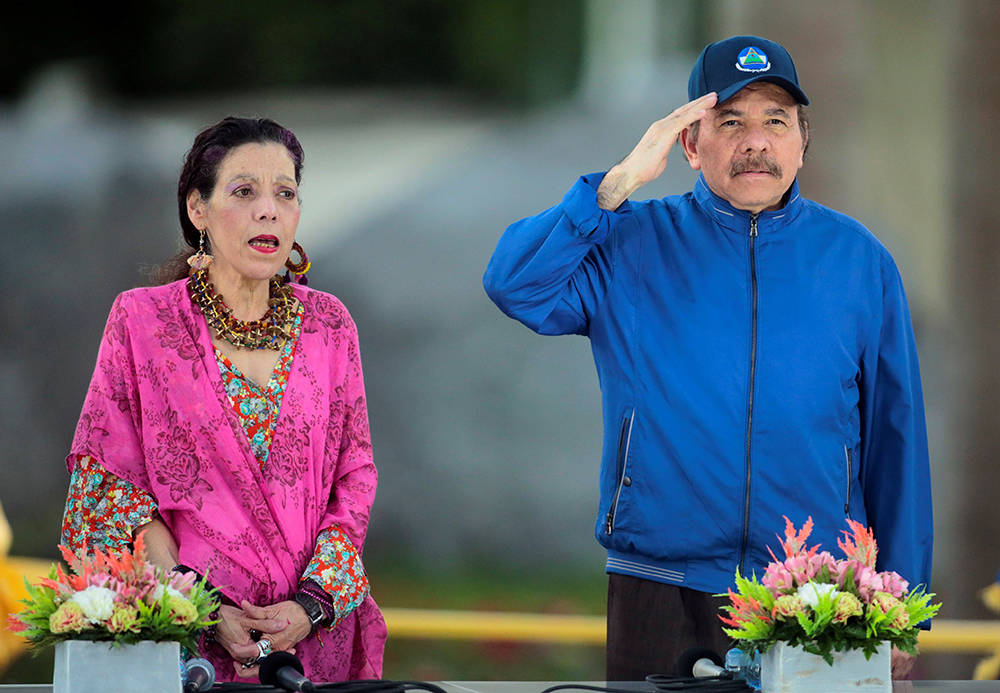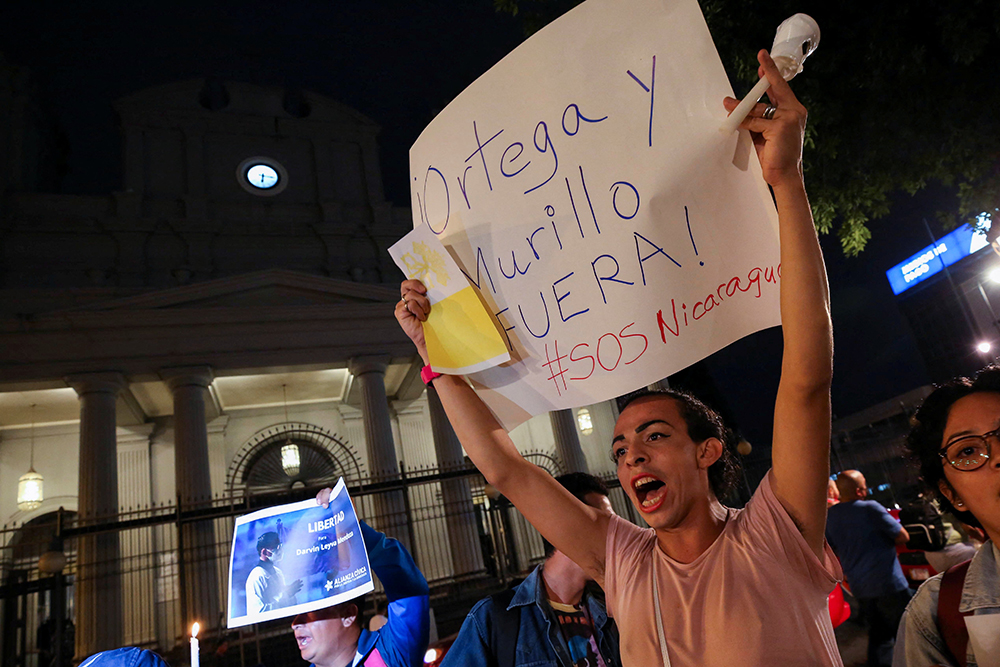
by Elise Ann Allen
ROME (Crux) — A week after Nicaragua’s government confiscated a prestigious Jesuit-run university, it has officially expelled the Society of Jesus from the country entirely and ruled that all of the order’s property and assets be seized.
Nicaragua’s government declared Pope Francis’ Jesuit order illegal on Wednesday and ordered that all of its property and assets be confiscated on grounds that the order had failed to comply with tax laws.
In an Aug. 23 statement, the Jesuit Province of Central America, which is based in San Salvador and oversees the order’s activities in Nicaragua, issued a statement titled, “The Unjust Aggression Against the Jesuits in a Context of Total Defenselessness and the Terrorization of the Nicaraguan Population.”
In their statement, the Jesuits announced the Nicaraguan Ministry of the Interior’s decree, which “canceled the legal status” of the Society of Jesus and allowed the country’s attorney general to transfer to the state all the order’s “immovable and movable property.”
According to the statement, this decision was made “without evidence that the administrative procedures established by law had been carried out.”
Noting that there have been more than 3,000 other similar cases of expulsion since a crackdown began in 2018 following widespread protests against the current regime, the Jesuits said the decree was carried out “without giving the opportunity for a legitimate defense on the part of the Jesuits and without an impartial body that judges and stops these totally unjustified and arbitrary abuses of authority.”
Prior to the publication of the decree, the Nicaraguan government, the Jesuits said, had also seized a Jesuit community house in Managua, occupying the physical property and evicting residents “without reasonable time to collect and take their personal belongings.”
The Jesuits condemned the decree, calling it a fresh act of “aggression” against the order which they said is “framed in a national context of systematic repression classified as ‘crimes against humanity’ by the group of experts on human rights in Nicaragua formed by the United Nations.”
They insisted that the government’s actions are aimed at “the full establishment of a totalitarian regime” and said Nicaraguan President Daniel Ortega and his wife Rosario Murillo, Nicaragua’s vice president, have failed at “being honest with these facts.”
The Jesuits also said Ortega and Murillo were responsible for impeding an independent and neutral judiciary that would allow it “to take measures to stop, reverse, and sanction” the unjust actions that have been taken.
In their statement, the Jesuits asked both Ortega and Murillo to “cease the repression” and to seek “a rational solution in which truth, dialogue, justice, respect for human rights, and for the rule of law prevail.”
They also asked that “the freedom and total integrity” of the Jesuits and all those who collaborate with them, or with whom they collaborate, be respected.
Saying there are “thousands of Nicaraguan victims who are waiting for justice and the repair of the damage that the current Nicaraguan government is causing,” the Jesuits said they are united to these voices.
They also voiced gratitude for the many expressions of support and solidarity they have received “in the face of these growing outrages.”
The move comes just one week after Ortega seized the Jesuit-run University of Central America in Nicaragua, calling it a “center of terrorism” and accusing it of betraying “the trust of the Nicaraguan people.”
At the time, the Jesuits hit back against the move, calling the allegations “totally false and unfounded” and saying the confiscation of a university by the Nicaraguan government is “the price to pay for a more just society, protecting life, truth, and the freedom of the Nicaraguan people.”

The move drew intense condemnation from the international community and human rights and academic organizations.
At least 26 universities have been closed in Nicaragua and their assets seized by the government since December 2021 as Ortega’s regime has tightened its grip on power.
Tensions with the Catholic Church in the country have also escalated, reaching a climax with the severing of diplomatic relations by Nicaragua in April, when the Vatican’s envoy was ousted, and the Holy See’s decision to formally close its embassy.
Last year, two orders of nuns, including Mother Teresa’s Missionaries of Charity, were expelled.
Prior to that, in August 2022, Nicaraguan authorities arrested Bishop Rolando Álvarez of Matagalpa, who had been among the Church’s most outspoken critics of the Ortega regime, announcing a hunger strike in May 2022 to protest police harassment.
Bishop Álvarez was arrested by government agents Aug. 4, 2022, and after spending six months under house arrest, he refused to join a group of over 200 political prisoners released into the U.S. and was charged with treason and sentenced to 26 years in prison.
In addition to Catholic orders and institutions, Nicaragua has also targeted other entities, so far outlawing or shutting down more than 3,000 civic groups and nongovernmental organizations.
The government ordered the Red Cross to cease operations in May, accusing the organization of “attacks on peace and stability” during the 2018 demonstrations, with the Red Cross pushing back, saying it had simply treated injured protesters.
In June, the government confiscated properties belonging to 222 opposition figures who were exiled to the U.S. in February. Among those on board the flight to the U.S. were seven presidential candidates who were barred from running in Nicaragua’s 2021 election, as well as several lawyers, journalists, rights activists, and former members of the Sandinista guerrilla movement.
Thousands of Nicaraguans have fled into exile since the Ortega regime’s violent crackdown on the 2018 protests, with Ortega saying the demonstrations were an attempted coup with foreign backing.
